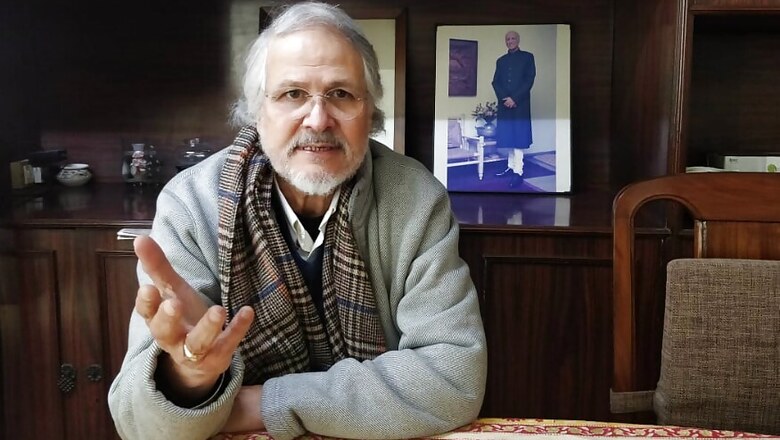
views
Delhi’s former Lt Governor Najeeb Jung is back in action. He has addressed protesters outside Jamia Millia Islamia, backed the women of Shaheen Bagh, declared that the anti-CAA movement will continue till the tarmeem (amendment) is withdrawn and has advised the central government that it can’t afford to be seen as anti-minority.
Jung has even diametrically changed his views on chief minister Arvind Kejriwal with whom he was locked in a bitter power struggle that spilled into the courts.
As Delhi heads to polls in this politically charged mood, the former L-G and ex-vice chancellor of Jamia University speaks to News18.com about the controversial Citizenship Amendment Act, his new opinion of Kejriwal and the vacuum in Muslim leadership.
Edited excerpts:
Jamia Millia Islamia recently witnessed a violent night where the Delhi Police was seen as a brutal and aggressive force. How do you see that particular incident when the police barged into the library?
The incident at Jamia Millia Islamia is extremely painful because such an instance has never happened in the university before. In fact, barring the JNU incident that happened a few weeks later, such incidents do not happen in Delhi. I am completely astonished at what happened because the Delhi Police does not behave in such a manner even when pushed to the corner.
I think senior echelons of the police have let their men down and did not supervise the operation. The attack in the library was unprecedented. I met the students who were injured – around 250 of them and some 15 were severely injured. One of them lost his eye. I don’t know what the future holds for him. Some students are suffering from trauma; it is affecting their minds. I am surprised at the level of this attack.
Delhi Police’s response was seen to be far more aggressive at Jamia…
Jamia is a secular university. It is a complete myth to think it’s a Muslim university. I would imagine 40% students are non-Muslim. They live in hostels together, play the same games. This atmosphere to give an impression that they were singled out is adversely impacting them. They come from small towns to make a future for themselves. It is not a communal question at all. These students are the youth of India, and authorities must help in resurrecting their confidence.
Since the Delhi Police is under the L-G and the Union home ministry, how would you have handled this situation differently?
Look, I can’t say. Situations change, circumstances change. I believe the police could have been more circumspect and I don’t think the L-G was informed that the police are taking such an action. I know that Anil Baijal is a seasoned civil servant. He would not have allowed the brutality that took place.
Shaheen Bagh has become a symbol for Muslim protests across the country. While the strength of these protests has been ordinary masses, one feels a sense of vacuum in Muslim leadership…
There is a vacuum not just in Shaheen Bagh, but an enormous vacuum in Muslim leadership overall. They need literate and educated Muslim leadership. They do not need muftis as their leaders. This agitation is stemming from the Act Muslims perceive to be unfair to them. But others are also joining in. While there is no single leader here, there seems to be a collective leadership. There are groups of people getting together, giving a sense of how to take the movement forward.
This movement is not an ordinary one. I don’t think the 21st century has seen a movement like this anywhere in the world. The only comparison is Hong Kong, but that is a violent one. This is peaceful one. And please remember, Hong Kong is a city. Here we have the agitation and the movement transgressing the whole of India – from the north east to the west coast, and from the south up to Kashmir.
I heard on the radio that Faiz’s Hum Dekhenge has been translated into Tamil and Kannada. Now that’s a sure sign of the movement’s strength. It is not just a protest or an agitation. It is a movement by the people of India. It has participation from all sections of people across religions.
There are around 160 of us former civil servants called the Constitutional Conduct Group. We take up issues with different authorities on matters that we feel adversely impact Indians. Recently, we wrote an open letter addressed to the general public on how wrong the CAA, NRC and NPR are. This group I think has only four Muslims. Likewise, the movement does not belong just to Muslims. It is also wrong to say that opposition parties are leading it. If the opposition in India had any strength, then perhaps this Act would not have been enacted. I did not see any politician in Jamia yesterday.
In the past few weeks, India has seen negative press across the world, including in countries that have been our friends for decades. Do you think CAA and NRC have hurt India’s image as a liberal, progressive democracy globally?
At a recent press conference, former foreign secretary and NSA Shiv Shankar Menon put it brilliantly. Unfortunately, after many years, India and Pakistan have got hyphenated. People are saying India has become like Pakistan. Around 10 years ago, we used to hyphenate Pakistan with Afghanistan, it was called Af-Pak. Now it is unfortunate that we hyphenate India with Pakistan, which has never been a full democracy.
This is, of course, impacting the image of India internationally. This is happening when the PM has worked very hard to build our image internationally. This is now impacting all his hard work of five years.
Unfortunately, the world is getting an impression that perhaps the Narendra Modi government is not adequately sympathetic to its minorities. And you can’t give that impression in today’s world. Once you give this impression, you are hurting yourself. Please remember the words of Swami Vivekananda when he said: "I am proud to belong to a religion that sees all religions as true”.
Swami Vivekananda said that "my motherland is a junction of two great systems, Hinduism and Islam, Vedanta brain and Islam body — is the only hope". He was thinking of modern Islam, a religion of equality. As Allama Iqbal said: "Ek hi saf me khade hue Mahmud our Ayaaz, na koi banda raha na koi banda nawaz (Sultan and slave stand in the same line side-by-side, no longer are they servant and master).
However, one thing is sure. The CAA, NRC and NPR have made Indians aware of the Constitution. Today, everyone is talking of the Constitution.
Arvind Kejriwal’s rise as a politician has been an interesting phenomena in Indian politics. Some love him, others hate him. How do you think he has evolved as politician in the past six years?
I think as a chief minister, Arvind has his heart in the right place. I have had differences with him, but those were on the issues of interpretation of the Constitution. We looked at things differently. I respect him for that because politicians often see things differently as opposed to trained civil servants like me. He would have been far more successful than he has been had he carried the civil servant in him. But his initial enthusiasm of getting 67 seats at such a young age, made him pick a path of aggression. I think that was not necessary. But leaving that aside… his performance has been very good.
I have enormous respect for Manish Sisodia and the way he conducted himself, worked in education. I also respect Arvind for his work in the health sector. I think he would have done better if he had a willing bureaucracy. That was an impediment for him only because his relations with civil servants were never the best. He had the desire to work quickly; systems should work quickly, but systems have their own momentum. You can’t short-cut procedures. We can develop systems to hurry them up, but at that time civil servants were not ready to work the way Arvind wanted them to. This adversely impacted his own administration. He has learnt in six years I think. In last one year, he has become much, much better. I have good personal relations with him. Acrimony is a myth.
Various news reports suggest that CAA-NRC has caused massive fear among minorities across India. How do you read these developments and what should the Centre be doing to the address the fears?
I think over the last six years, there is a growing fear among Muslims and Christians. Having said that, I also believe that the state and central governments should have taken steps to allay these fears. The Prime Minister has spoken that fringe elements behave in this manner. We need to see action on the ground that fringe elements can be handled with an iron hand. The fear is stemming from a series of actions that are perceived to be leading towards action against minorities.
For instance, look at Kashmir, which was a Muslim-majority state. I am not talking about Article 370 being good or bad here. Look at Triple Talaq, I am not saying it is good or bad, but it is perceived by Muslims as interference. And now, CAA-NRC. The perception is that it becomes harsher on the Muslim community. This has led to fear and the reaction to this fear is now visible on the streets of India. What you are seeing in Shaheen Bagh is a reaction to all this; cumulative fear over the last five years, the fear that has now come out. And that’s what you are seeing today in various protests.
India combines all religions, you can’t single out two and say I will take care of them. We will live and die together in this country.
The political representation of Muslims has declined in Parliament and in state assemblies. There is so much being said on their “political irrelevance”, and how their votes do not matter for the BJP to win.
It’s a phase in history when the number of Muslims in Parliament and assemblies goes up or down. I think it went up substantially during Rajiv Gandhi and VP Singh’s time. But see the recent Maharashtra elections. The Shiv Sena gave Muslims tickets and the candidates won. It’s a similar story with the NCP. So there is increase in Muslim representation in Maharashtra now. This works cyclically, I don’t want to blame political parties for this. The parties select candidates who they think have better chance of winning elections. The current situation shows that less than adequate number of Muslims are there in elected bodies, but it will be remedied over time.
Also, I cannot absolve Muslims from this. I have heard Muslims say ‘we will make our votes matter’. Well, it doesn’t matter if you do not have numbers in that constituency. It’s a myth that has been busted that Muslims can adversely impact a large number of elections. Minorities cannot absolve themselves of their own rigid attitudes. Don’t forget Shah Bano. Clearly, Muslims took up a blatantly unfair and unjust issue. They did unparalleled damage to themselves.
The call for La Ilaha Illallah at the CAA protests is exclusionary or necessary?
That’s just an emotional call. I don’t think it’s a communal one. The main thing is that protestors read out the Preamble, today they chant Vande Mataram. The greatest improvement, because of the CAA agitation, is that Muslims understand there is nothing in wrong in singing Vande Mataram. There is pride to bowing to your mother. And this country is our mother. Let’s also never forget that India is a secular country because 85% are Hindu.










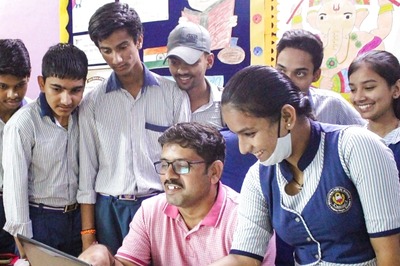

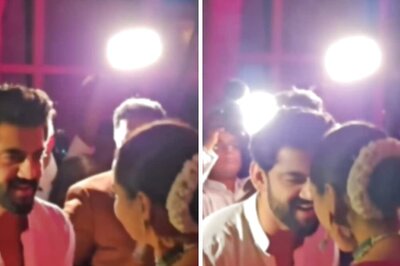
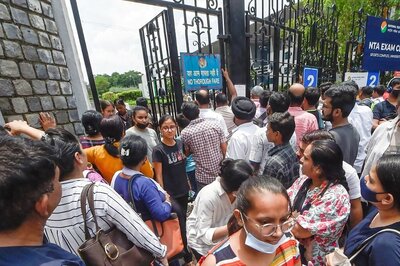
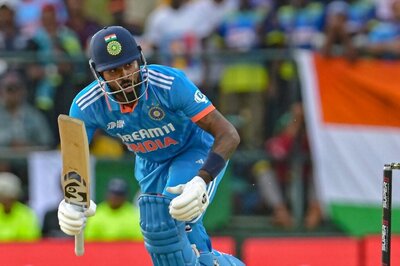
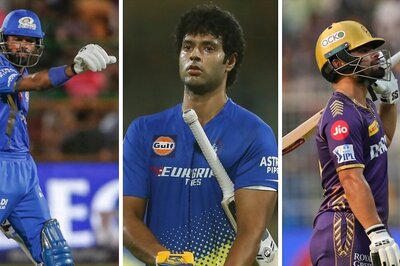


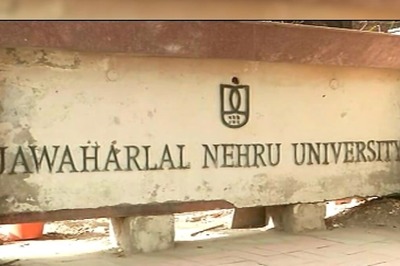

Comments
0 comment